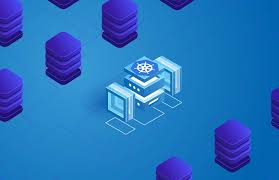CircleCI is a cloud-based continuous integration and continuous delivery (CI/CD) platform that automates the software development process by facilitating the building, testing, and deployment of applications. It integrates with version control systems like GitHub and Bitbucket, allowing developers to trigger builds and tests automatically when changes are made to the codebase. CircleCI supports parallel testing Read More
Tag: Kubernetes
Upgrade & Secure Your Future with DevOps, SRE, DevSecOps, MLOps!
We spend hours on Instagram and YouTube and waste money on coffee and fast food, but won’t spend 30 minutes a day learning skills to boost our careers.
Master in DevOps, SRE, DevSecOps & MLOps!
Learn from Guru Rajesh Kumar and double your salary in just one year.
Kubeflow is an open-source platform designed to facilitate the deployment, management, and scaling of machine learning (ML) workflows on Kubernetes. It provides a set of tools and components for automating the end-to-end ML lifecycle, including data ingestion, model training, hyperparameter tuning, deployment, and monitoring. Kubeflow integrates seamlessly with Kubernetes, enabling users to leverage its scalability, Read More
As businesses adopt cloud-native applications, microservices, and DevOps, managing Kubernetes environments efficiently becomes crucial. Red Hat OpenShift is an enterprise-grade Kubernetes platform that simplifies container orchestration, security, automation, and hybrid cloud deployments. OpenShift extends Kubernetes capabilities with enhanced security, developer-friendly workflows, and automation features, making it an ideal container platform for enterprises. This blog will Read More
As modern applications become more complex and distributed, managing containerized workloads efficiently is critical for scalability, reliability, and performance. Kubernetes, often abbreviated as K8s, is the industry-leading open-source container orchestration platform that automates the deployment, scaling, and management of containerized applications. Originally developed by Google and now maintained by the Cloud Native Computing Foundation (CNCF), Read More
IT certifications have always been playing a vital role in getting a job or required knowledge. In an interview, if you have a certification, you have more advantages to get the job and I have experienced it personally. There are lots of other channels as well to learn or to enhance the knowledge and skills Read More
DevOpsSchool is an industry leader in delivering DevOps, Cloud and Container training programs since 2014. And Docker and Kubernetes and both are containers tools. DevOpsSchool is recognized as one of the best reviewed and rated Docker and Kuberentes Certification training institute. DevOpsSchool has designed both Docker and Kuberentes training programs according to the current industries Read More

Source – https://containerjournal.com/ StackRox today added additional DevSecOps workflow capabilities to its security platform that runs natively on Kubernetes platforms. IT teams can now identify vulnerabilities in active software dependencies during runtime and scan for vulnerabilities in container images that have no base operating system. Remediation efforts can now be prioritized based on vulnerability scores. The Read More

Source: searchitoperations.techtarget.com Sumo Logic broadened its observability tools this week, positioning itself as a user-friendly, lower-cost alternative to more established enterprise rivals. The company’s AWS Observability Solution and Microservices Observability Solution for Kubernetes, first announced in early August, is now generally available. Observability is a term for IT monitoring techniques that automatically surface useful signals amid high Read More

Source: enterpriseai.news Container tools and security fixes for Kubernetes cluster orchestrator continued to be rolled out as the microservices ecosystem evolves. With Kubernetes security concerns growing as deployments scale, container security partners NeuVector and Sonatype this week released centralized container defenses along with open source software security tools. The goal of the integration is providing Read More
Source: searchitoperations.techtarget.com Whether in making their first move to Kubernetes or staying ahead of security threats in a massive container infrastructure, a novel take on monitoring has helped some IT pros at large companies manage the shift to cloud-native microservices. Enterprises have a plethora of Kubernetes monitoring tools to choose from, such as application performance monitoring and AIOps. Read More

Source: redmondmag.com/ Microsoft wants to donate the code for a new Open Service Mesh (OSM) project, designed to run on Kubernetes, to the Cloud Native Computing Foundation (CNCF), according to a Wednesday announcement. The CNCF is derived from the Linux Foundation, which oversees various open source Linux projects. In the CNCF’s case, it steers technologies that “enable cloud portability without Read More

Source: searchapparchitecture.techtarget.com In order to operate correctly, microservices need to discover each other in an intelligent manner. Some development teams try to manage this by locating where particular microservices are at a single point in time, and then writing code that links these locations together. The problem is the location of these microservices can change Read More

Source: theserverside.com There are plenty of new features to talk about in the world of Red Hat Runtimes. When I recently had the chance to speak with James Falkner, technical product manager for Red Hat Runtimes, he zeroed in on the Quarkus framework, or more specifically, the Red Hat branded build of Quarkus. So, what’s Read More

Source: searchvmware.techtarget.com VMware offers Kubernetes on vSphere, but the vendor still has work to do to make vSphere ideal for modern applications. Kubernetes enables applications to run in containers at scale for microservices-based applications, but users must combine a collection of microservices to create a full application — which is one role of a service Read More

Source: datanami.com “We were disappointed, if not surprised, to see that data wrangling still takes the lion’s share of time in a typical data professional’s day,” Anaconda wrote in its report, “2020 State of Data Science: Moving From Hype Toward Maturity.” “Data preparation and cleansing takes valuable time away from real data science work and has a Read More

Source: containerjournal.com D2iQ has added a curated distribution of Kubeflow, open source software that makes it easier to deploy workflows that incorporate machine learning algorithms on a Kubernetes cluster, as an extension to its existing portfolio of automation tools. Jie Yu, chief architect for D2iQ, says KUDO for Kubeflow will make it easier for IT teams to Read More

Source: containerjournal.com The Cloud Native Computing Foundation (CNCF) has accepted a Litmus Chaos application testing tool based on chaos engineering principles as a sandbox level project. Developed by MayaData, the open source software provides IT teams with a chaos engineering tool that runs natively on Kubernetes. MayaData COO Uma Makkara says Litmus Chaos was originally created Read More

Source: containerjournal.com Cloudera today announced that it plans to make an instance of its data management platform based on Hadoop generally available this summer on Red Hat OpenShift, which is based on Kubernetes. Arun Murthy, chief product officer for Cloudera, says Cloudera Data Platform (CDP) Private Cloud is a complement to the instances of the platform Read More

Source: containerjournal.com Snapt has made generally available its Nova application delivery controller (ADC) for Kubernetes clusters, which combines a local and global load balancer, web accelerator and web application firewall (WAF) in a single platform. Company CTO Dave Blakey says Nova 2.0 is a hosted instance of an ADC service designed from the ground up to enable Read More

Source: virtualizationreview.com Israel-based Run:AI, specializing in virtualizing artificial intelligence (AI) infrastructure, claimed an industry first in announcing a fractional GPU sharing system for deep learning workloads on Kubernetes. The company offers a namesake Run:AI platform built on top of Kubernetes to virtualize AI infrastructure in order to improve on the typical bare-metal approach that statically provisions AI Read More

Source: containerjournal.com Trilio this week announced it is making available a platform for protecting Kubernetes environments dubbed TrilioVault for Kubernetes under an early access program. At the same time, Trilio announced TrilioVault for Kubernetes has been certified for Red Hat OpenShift, an application development and deployment platform based on Kubernetes. Previewed at the recent KubeCon + CloudNativeCon 2019 Read More

Source: venturebeat.com A push to reinvent the way developers create applications for the internet has gathered significant momentum, catching even some of its most ardent supporters by surprise. But even as the popularity of infrastructure based on the Kubernetes platform and microservices surges, the adoption has inevitably brought to light the massive challenges big businesses Read More

Source: containerjournal.com Kubernetes, in many ways, has allowed software organizations to realize the benefits of microservices by providing a convenient and powerful abstraction for deploying, scaling and running distributed software systems. Those benefits, however, have come at a cost for traditional software operations. Indeed, as microservices have grown in complexity and scale, teams have often Read More

Source: siliconangle.com This week, throngs of cloud-native computing fans were set to descend on Amsterdam for KubeCon, the Cloud Native Computing Foundation’s conference for all things Kubernetes. Alas, like so many other conferences, the CNCF decided to postpone KubeCon. But that doesn’t mean I can’t still write about the highlights of the show in this article. Read More

Source: rtinsights.com Netflix, Amazon, and PayPal – these well-recognized global brands fundamentally changed the way we consume entertainment, shop, and manage finances, respectively. However, without major advancements shaping the database industry over the last 40 years, these brands – synonymous with their cloud-based applications – would not exist. To be specific, today’s instant, on-demand services Read More

Source: containerjournal.com Run:AI this week announced the general availability of a namesake platform based on Kubernetes that enables IT teams to virtualize graphical processor unit (GPU) resources. Company CEO Omri Geller says the goal is to enable IT teams to maximize investments in expensive GPUs by leveraging a single line of code to plug in its platform Read More

Source: thenewstack.io Service mesh technologies have emerged as a reliable way to manage observability, security and traffic management in microservices environments, typically with the use of Kubernetes for container orchestration. Specific use cases and needs for service meshes also vary. The New Stack recently completed a survey about service mesh use cases. While one third of those surveyed Read More

Source: rtinsights.com Many companies are starting to embed continuous intelligence (CI) using artificial intelligence (AI) and machine learning (ML) into business processes. And the trend is expected to continue. Gartner notes that by 2022, more than half of major new business systems will incorporate CI that uses real-time context data to improve decisions. This will require new Read More
Source: containerjournal.com Domino Data Lab is making the case for a multi-cloud approach to building and deploying applications infused with machine learning algorithms now that its platform runs on Kubernetes. Company CEO Nick Elprin says that as organizations move to employ machine learning algorithms to build various types of applications, many of them don’t appreciate the Read More

Source:-techobserver.in As enterprises look to become more agile and move towards a DevOps and continuous testing, the need for microservices has grown manifolds. Businesses require a next-generation web application firewall (WAF) that enables secure delivery of applications. Software development life cycle (SDLC), is as flexible as the dynamic environment and threat landscape and adapts to Read More